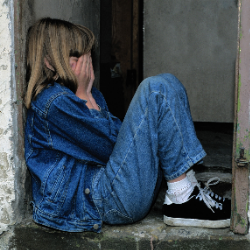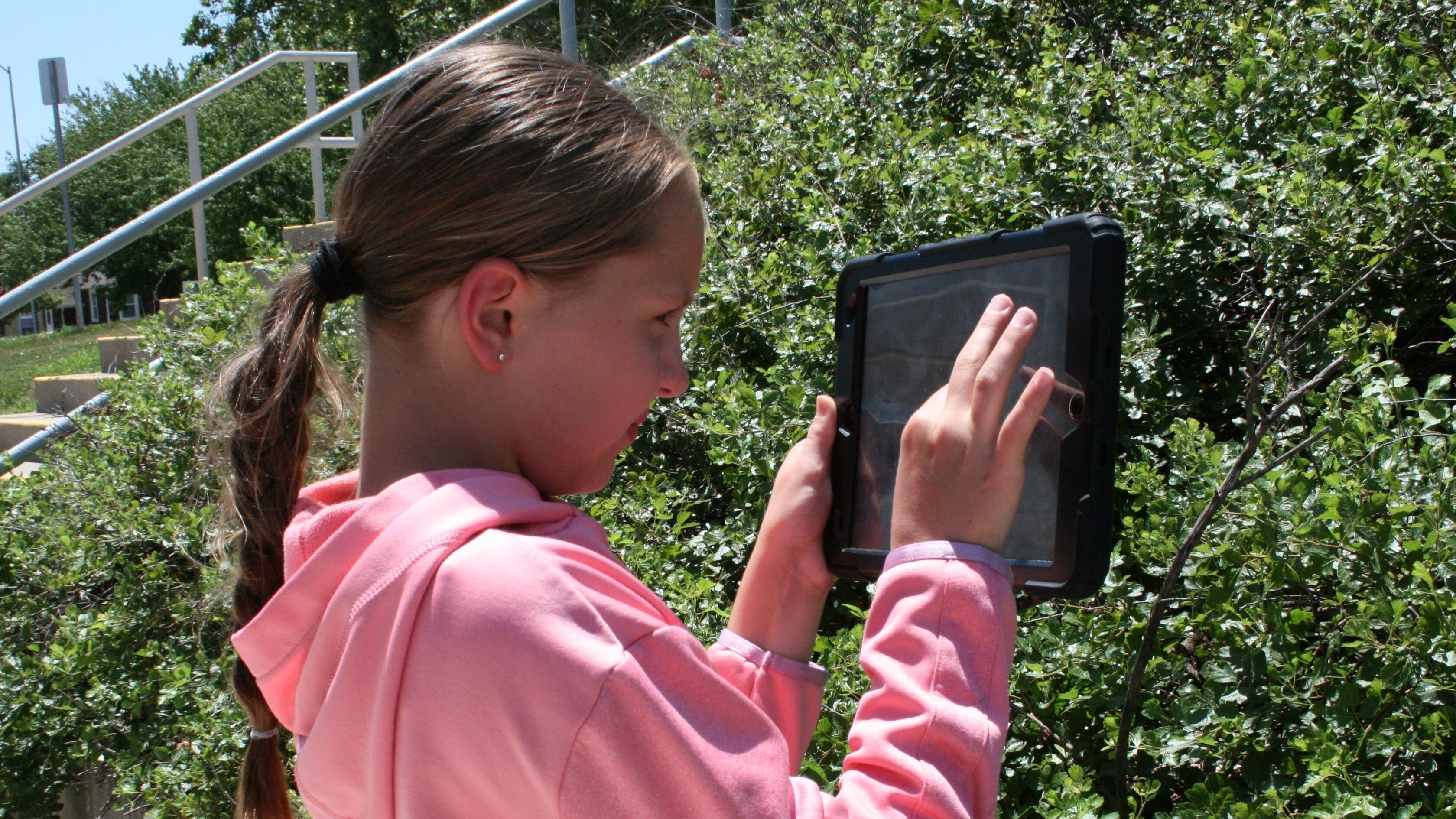
Homelessness is most visible when people are on the street, out in the open. People who have no shelter at all are extremely vulnerable, but homelessness has other faces too. It can have a particularly different impact for students working to get their education.
People lose their homes for a lot of different reasons. One student lost hers for reasons that could put her in danger, so to protect her safety, we’re not going to use her real name. Instead, we’ll call her Emily.
“In the past I was living with my dad for most of the time. But there was a hardship that happened to me last semester, and so I had to move into the dorms,” Emily said.
Emily is a sophomore at the University of Nebraska at Omaha. She’s majoring in social work, and she hopes to use her degree to help people who face challenges like hers.
“As a social worker, I would like to give back to the community that has given me so much. I want to like, advocate for people who also suffer through things that I've suffered through and encourage them to keep going, cause I know life has unexpected turns and I just want people to know that you can overcome those and you don't have to stay in those tough situations,” Emily said.
Emily lost her housing in the fall of 2018. She needed to find a place to stay quickly. She turned to her adviser for help.
“I didn't really think I was gonna get any help if I'm being honest, just because I know that that's like not academic-based, that's just like a personal issue," Emily said.
Emily initially thought about dropping out of school to get a full-time job. She already has two part-time jobs, but thought she could make more full-time and then afford a place to stay.
Emily’s adviser connected her with Cathy Pettid, assistant vice chancellor of student affairs at UNO. Pettid says she often talks with students facing housing insecurity who are thinking of putting their education on pause.
“Being in college is actually a protective factor. If you can stay involved, you're working toward a goal, you can take advantage of the many, many resources on campus, that's gonna help you get over this enormous challenge in your life, so I'm always talking about instead of dropping out, what can we reduce?” Pettid said.
Pettid connected Emily with one resource UNO has - hardship scholarships for housing. That scholarship made it possible for Emily to live on campus in the dorms.
“Thankfully she helped me and it was very much what I needed at the moment,” Emily said.
Pettid says a variety of factors can make a student eligible for a hardship scholarship.
“Sometimes students find themselves in domestic violence situations. Sometimes students find themselves having unexpectedly lost a job or perhaps their parents unexpectedly lost a job. They'll come to us and see if there's anything that they can seek for assistance,” Pettid said.
Pettid receives nominations from UNO faculty and staff of students who need assistance. People within the university may see issues starting to arise for students.
“Sometimes a student has had great attendance in class and all of a sudden that falls off, or they're turning in work late, and that's really atypical for the student, and so either the professor or an academic adviser can kind of find out what's going on,” Pettid said.
Those are some of the same signs teachers and counselors look out for at the K-12 level.
Ellen Reilly is the homeless outreach specialist for the Lincoln Public Schools. She says high school students often hide what they are going through.
“What I see a lot is maybe a student comes out as gay and mom and dad kick them out. That's a huge factor for a lot of homeless youth. Or mom gets a new boyfriend and boyfriend doesn't want the student to live there anymore, so they leave,” Reilly said.
Reilly also deals with whole families facing homelessness.
“When I step in, the biggest piece that I talked about and that really, really helps and supports families is that transportation to school. So the great thing about that is if a family moves out of a school district, but still needs that transportation, we can step in and offer that so they don't have to move schools,” Reilly said.
That transportation allows students from families who are living in a shelter or with a friend to have continuity at school. It can come in the form of the school bus or a taxi service the district contracts with.
Wendy Van is president of the Foundation for Lincoln Public Schools. She says they work with LPS families who are in crisis and on the brink of losing their home through the student emergency fund.
“We know that so many times families are two hundred dollars away from homelessness. It's that one bill that makes them get behind, so at the Foundation what we do is we spend a lot of time, our student emergency funds do a lot of work to keep families in their apartments or in their homes,” Van said.
This year the student emergency fund has seen an uptick in requests. Reilly, at LPS, says that each year she deals with an average of about 500 students. However, she suspects there are more students and families facing housing insecurity who never come for help.
Students facing homelessness are just that: students. Like Emily, they may work two jobs in addition to taking classes.
“Some people might think that people are lazy, that, 'Oh, you're just not trying enough, you should work more, you should try to get a better paying job,' but as a college student my academics are kind of like a full-time job. It's hard to balance academics and work. It is possible, but it takes more effort than someone who doesn't have to work because they get support from their parents still,” Emily said.
Students and families in crisis often need to work together with schools and community groups to keep on track with their education. The goal is to give students the opportunity to concentrate on their homework, instead of working to find a home.











